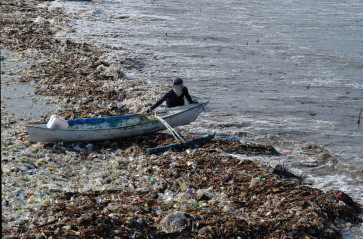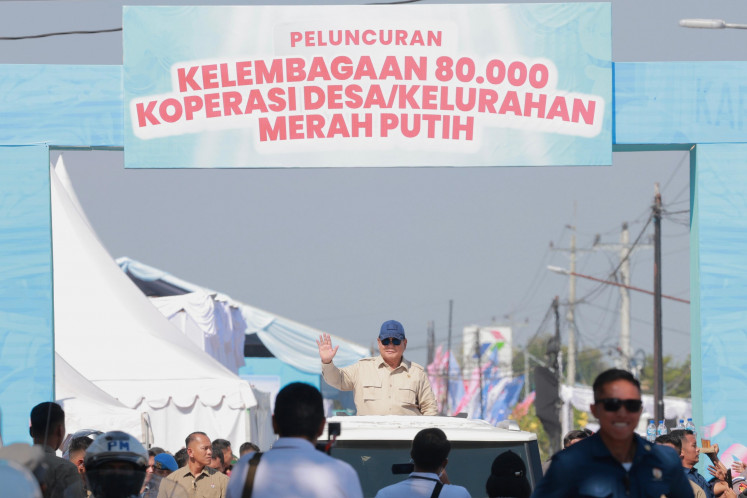Popular Reads
Top Results
Can't find what you're looking for?
View all search resultsPopular Reads
Top Results
Can't find what you're looking for?
View all search resultsTemperature in Java to rise by 1 degree
Experts say an increase in temperature by 1 degree Celcius will severely affect the environment, causing an increasing frequency of floods, fires, storms, drought and landslides in the region
Change text size
Gift Premium Articles
to Anyone
E
xperts say an increase in temperature by 1 degree Celcius will severely affect the environment, causing an increasing frequency of floods, fires, storms, drought and landslides in the region.
The Meteorology, Climatology and Geophysics Agency (BMKG) predicts that temperatures on Java will increase by 1 degree Celcius in 2015 due to climate change.
Agency chief Sri Woro B. Harijono said Tuesday that Java's temperatures would increase to between 29 and 30 degrees Celcius on average by 2015, from the current average of 28 to 29 degrees Celcius.
"The prediction is based on our land-based temperature simulation model using data from 1979 to 2000," she said.
"The increase in sea levels around the island might be less than 1 degree Celcius in 2015."
Sri was speaking during a visit by Coordinating Minister for People's Welfare Agung Laksono to the BMKG office.
The increase will be destructive to natural and man-made systems. Impacts will include the rising frequency of floods, storms and landslides," she said.
Experts and institutions have released their research results about the impact of global warming and climate change.
The Intergovernmental Panel on Climate Change (IPCC) concludes that most of the observed temperature increases since the middle of the 20th century were caused by increased concentrations of greenhouse gases resulting from human activities, such as the burning of fossil fuels and deforestation.
The International Development Research Center (IDRC) recently said that Jakarta was one of the world's most vulnerable cities to climate change. Jakarta is located in the northwestern part of Java.
Separately, Giorgio Budi, coordinator of the Civil Society Forum on Climate Change, told The Jakarta Post the worst possible impact of temperature increases by only 1 percent would be the complete submersion of small islands surrounding Java.
"Changes in the world climate will influence the functioning of many ecosystems and their member species," he said over the phone.
"Rising sea levels on the island of Java will affect water quality in the region and more areas will have salty water.
"Salty water cannot be used for agricultural plants, like rice and corn. This will severely impact the country's agriculture sector."
Furthermore, he said, the population would be at risk of contracting widespread communicable diseases such as diarrhea and malaria.
Giorgio said Indonesia should no longer rely solely on foreign aid to help its people adapt to climate change.










